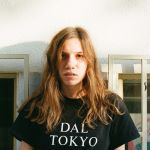Cost: £165
Book a place
Overview
This course explores the intimate, interdependent yet fragile relationship between words and images in a cinematic context.
Words can often be the starting point for a piece of moving-image, unlocking feelings that gradually evolve into audio-visual experience. It can also work in reverse, that an image or series of images emerge first and through writing we can explore the emotional landscapes they open out onto. From either position, words and images spiral together offering an imaginative starting point that can lead us further into our subjectivity and connect us to our outer social and political environments.
Over 5 weeks, we will draw on the work of experimental filmmakers and extracts from key texts. Through a combination of writing workshops, exercises and feedback sessions, we will develop a unique approach to filmmaking practice that moves through personal, autobiographical, documentary, hybrid and fictional forms.
Who this course is for
This course is open to filmmakers, writers, artists and non-fiction enthusiasts who are looking for a new approach towards writing for non-fiction and experimental film.
Course content
Week 1
Welcome and introductions
Limitation of the image: Working through memory, materiality and melancholia
In this session we will think about the parameters of the image with particular emphasis on how they pertain to memory and melancholia. We will begin to explore the alchemical process of writing as emotional formulating - in what ways it retains feeling, and how it might inherently embody loss. We will also begin to unravel the dimensionality of images and their making and reflect on our own position as viewers of cinema - the reciprocal co-animation process taking place between our perception and the presence of images themselves.
Films:
- Lore by Sky Hopinka
- The Room Called Heaven by Laida Lertxundi
- Ulysse by Agnès Varda
An image-focused exercise will be set and optional readings for the week provided.
Week 2
Film as Diary
This week we will consider the ways in which writing relates to the unconscious and how structures for autobiographical language emerge through the intimate space of the journal. Through an in-session writing workshop, we will navigate a relationship to ‘inner’ images, exploring the manner in which writing can place us in a transitional state of discovery. Reflecting on the films, we will explore the fluidity and motion expressed through the production of images, as well as how their arrangement and an approach to sound can contribute to a rhythmic, layered and embodied film language.
Films:
- IWOW: I Walk on Water by Khalik Allah
- Fainting Spells by Sky Hopinka
- Divided Island by Bella Riza
- A Month of Single Frames by Lynne Sachs
We will participate in a practical writing workshop within the session. An optional guide for writing practice for the week and readings will be provided.
Week 3
Correspondence: Mapping terrains of distance and placemaking
This session will focus on correspondence and letter writing as a means for transmission and reception of feeling. Dating from the 18th century, letter writing creates a space where the psyche can find form and be shared through the hands of the receiver. The letter creates a mobile impression of both emotional and physical landscapes, allowing us to inhabit spaces and feelings beyond our personal realm of experience. We will reflect on how correspondence and the form of the letter is explored through filmic space and consider its invitation for dialogue, friendship and connection.
Films:
- News From Home by Chantal Akerman
- Measures of Distance by Mona Hatoum
- Afternoon by Tsai Ming-liang
- Correspondence by Carla Simón and Dominga Sotomayor
- Fatima’s Letter by Alia Syed
Practical exercise set and optional reading for the week provided.
Week 4
Writing beyond words, writing the feeling
In this week’s session we will consider writing beyond text. We will explore works that don’t always rely on a linear narrative, are impressionistic and create a subliminal and experiential film language. How can we convey a sensation through writing that moves beyond verbal language and dialogue? How do we write the non-verbal? This session places its focus on the exploration of the atmosphere of particular emotions through an alternative approach to writing.
Films:
35 Shots of Rum by Claire Denis
Ashes by Joana Hadjithomas & Khalil Joreige
Ste. Anne by Rhayne Vermette
Blue by Apichatpong Weerasethakul
We will participate in a practical writing exercise and an optional reading for the week will be provided.
Week 5
Our closing session will be dedicated to sharing work from the programme and feeding backing to one another on ideas and the materials produced. It’s an opportunity to gain feedback, consider what methods of practice were beneficial and to plan for development beyond our meetings.
Teaching and structure
The course will consist of writing workshops, lectures and group discussions
Learning Outcomes
Within a small group and aided by group and tutor feedback, students will be able to explore the interdependent relationship between words and cinematic images. Inspired by the work of experimental filmmakers, they will be able to brainstorm and develop ideas for their own filmmaking work. This course follows an unique approach by moving between nonfiction and fiction filmmaking and by focusing on how film can be used to unlock emotions on screen.
Course team

Bella Riza
Bella Riza (b. 1989) is an artist and filmmaker based in London. Her work explores the representation of memory, cultural experience and personal histories, often in connection to ideas of belonging. She holds an MA from the Royal College of Art where she specialised in moving-image. Her films have been presented as part of ‘Healing Space’, GIANT Bournemouth; 'Not before it has forgotten you', Nicoletti Contemporary (2022); LOOPBarcelona (2021); ‘Displaced Belongings’, PlatformAsia and Videoclub (2020); Tate St Ives (2019); ‘Heartache and Heartbreak’ on 4:3 (2019); York Art Gallery (2018); and New Contemporaries (2018). Riza currently teaches on the documentary film MA at University College London.
Book a place
Course information last modified: 17 Oct 2023, 16:16
 Close
Close

